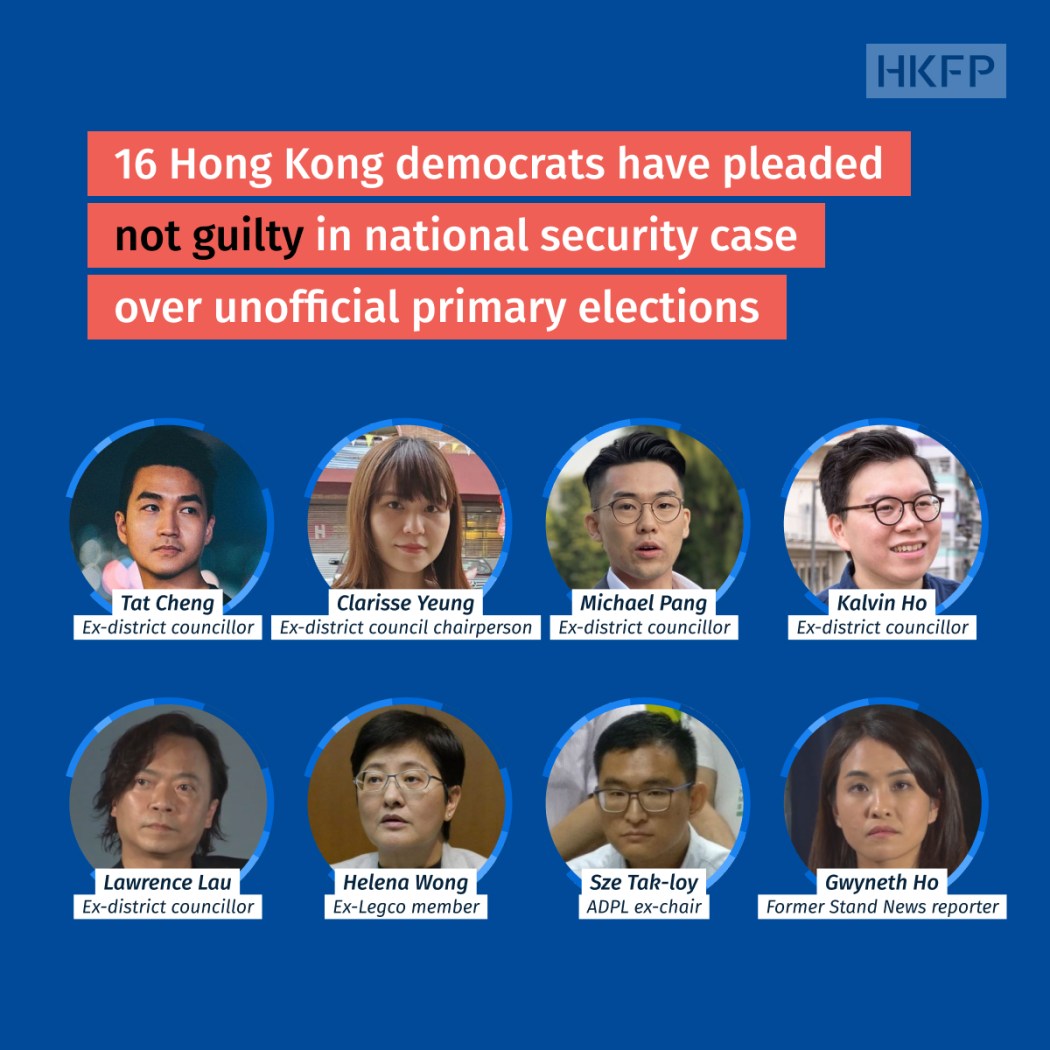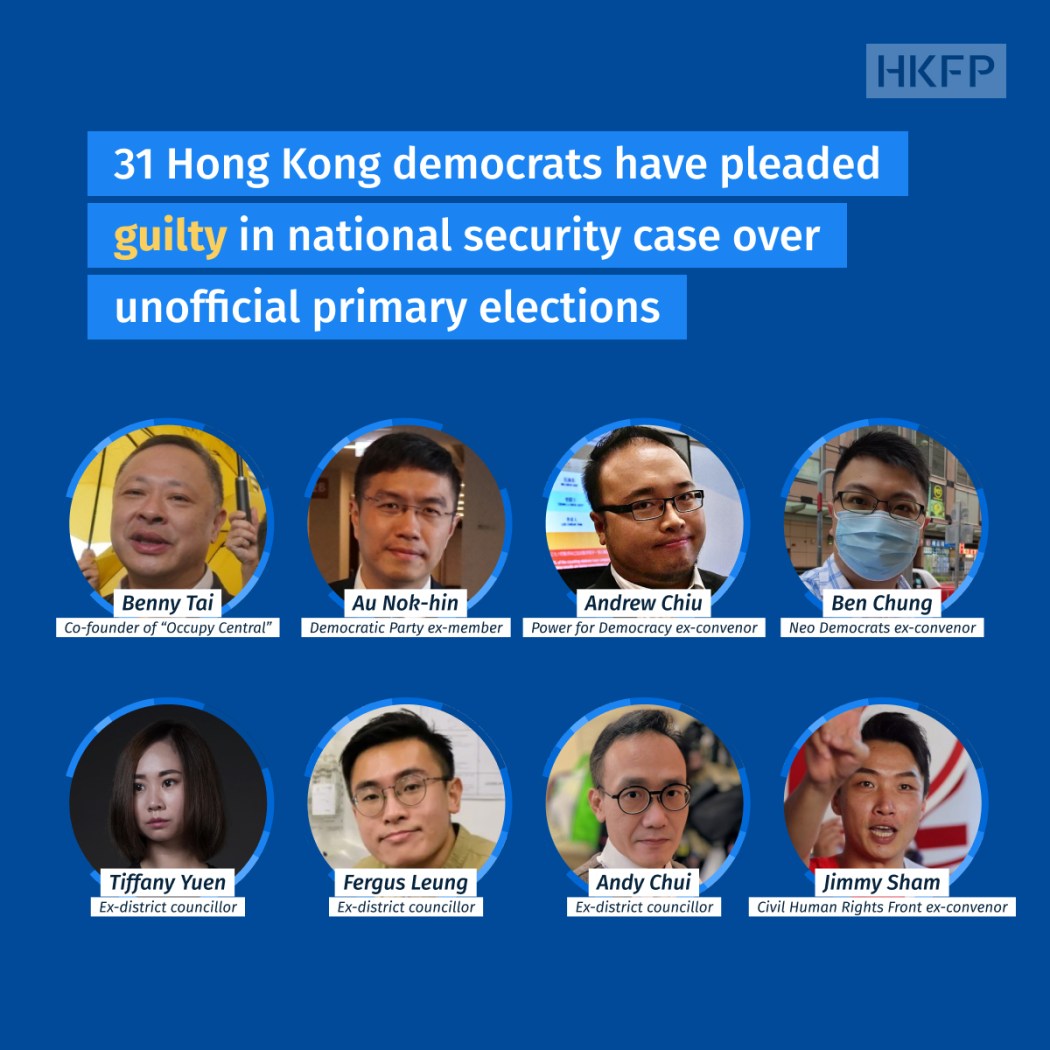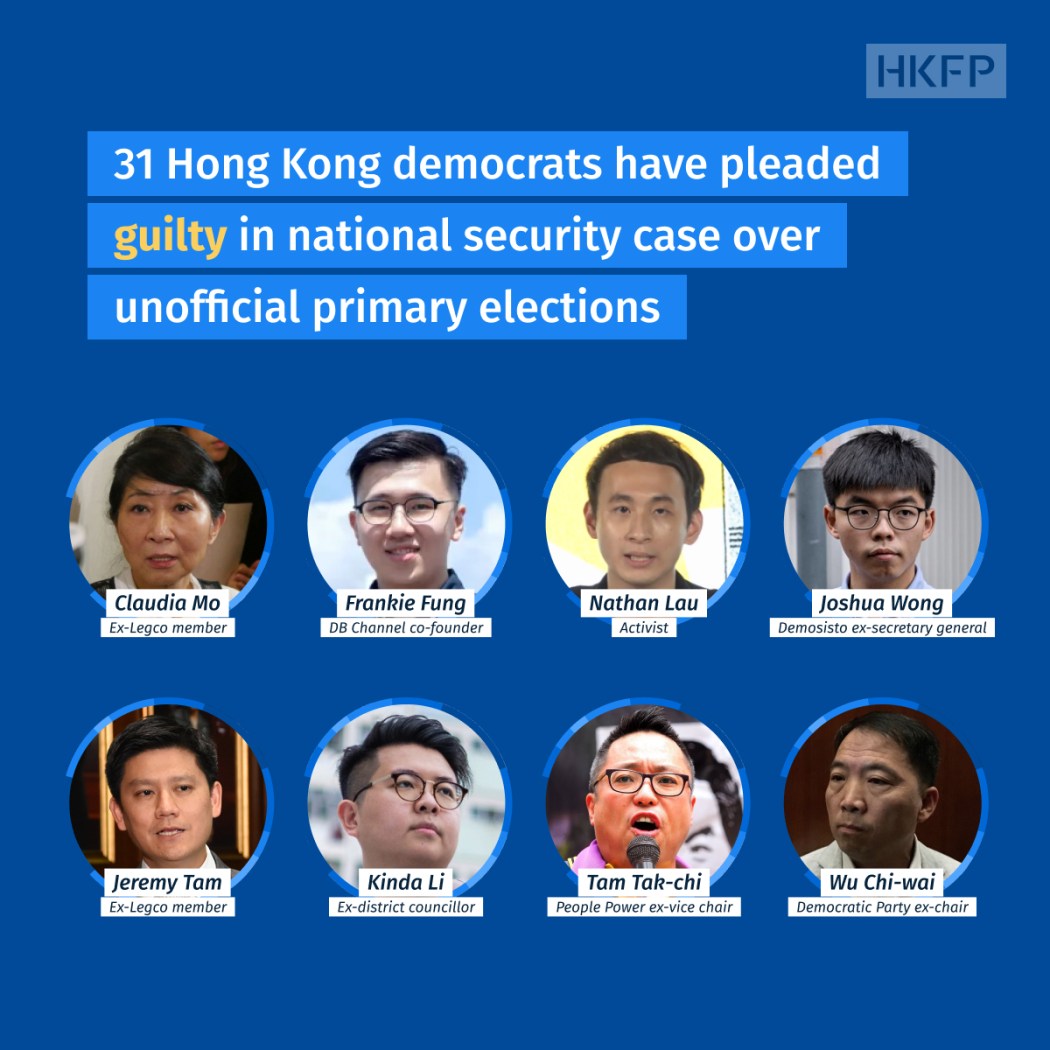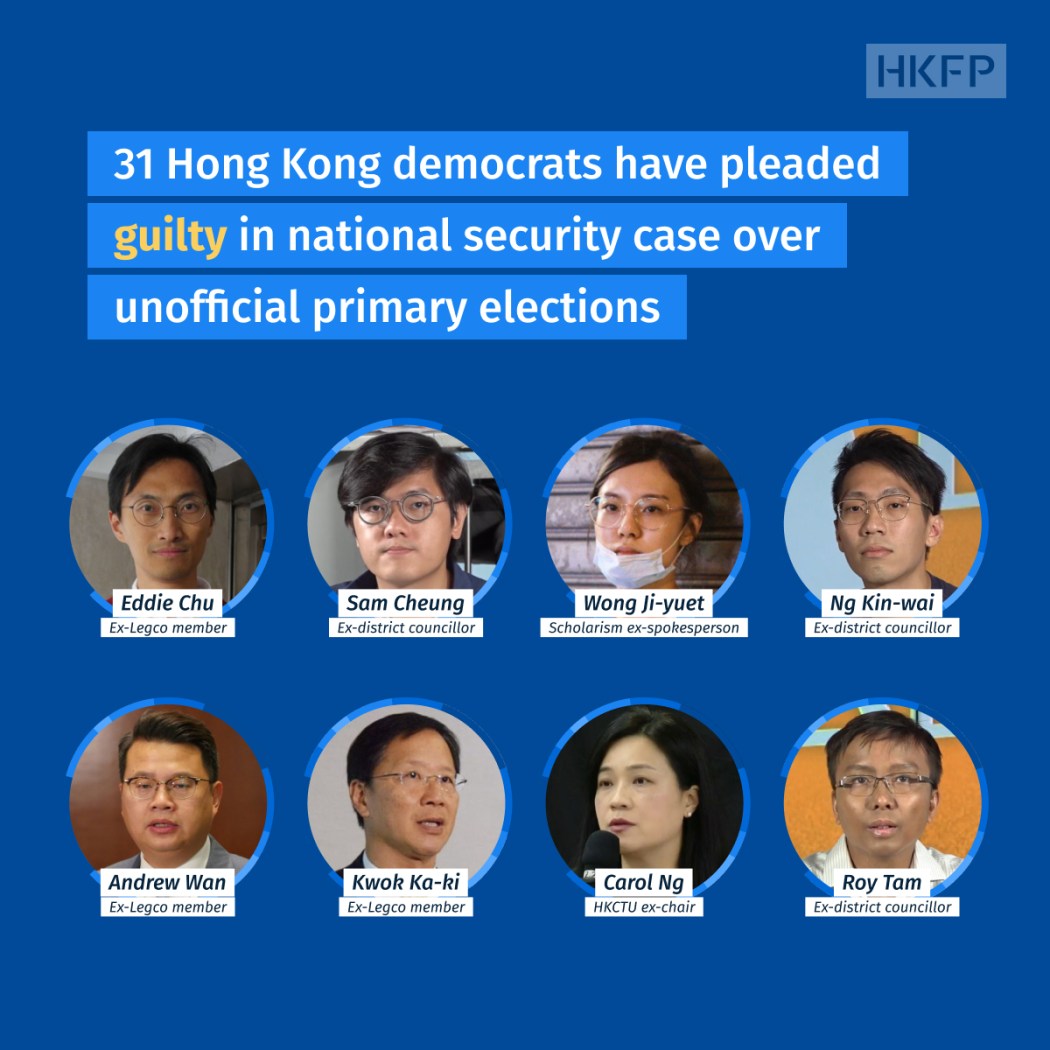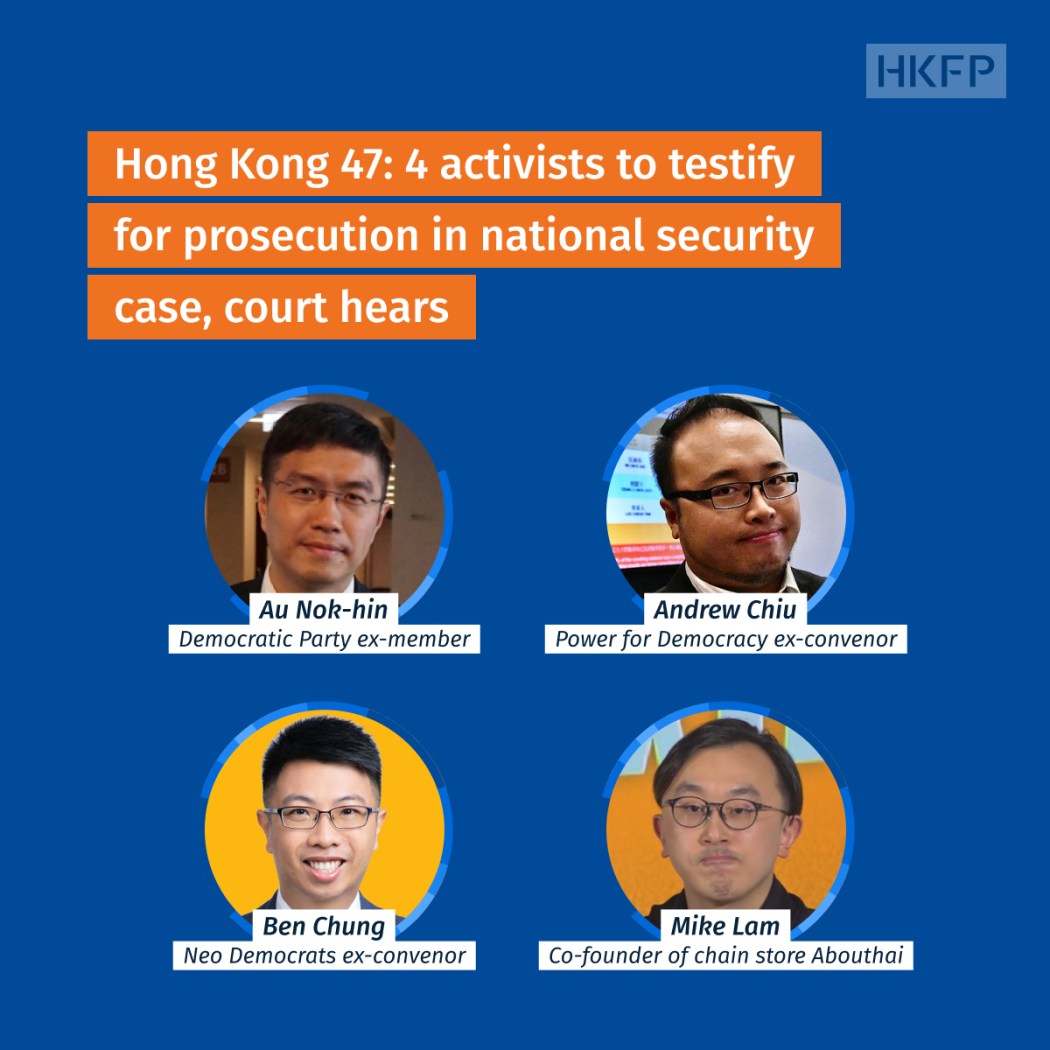HKFP’s on-the-ground reporting is also appearing in The Guardian.
At least 200 people have lined up outside a Hong Kong court on early Monday morning, as the trial of the city’s largest national security case against 47 democrats begins after some defendants have been detained for almost two years.

Monday marked the start of a 90-day trial against former lawmakers, ex-district councillors and other pro-democracy activists who stand accused of taking part in a conspiracy to commit subversion. The offence under the Beijing-imposed security legislation could land the defendants up to life behind bars if convicted.

The alleged conspiracy evolved around an unofficial primary polls held in July 2020, which aimed to help the pro-democracy camp select candidates for an upcoming Legislative Council election and secure a majority in the legislature.
The defendants were said to have intended, had they secured a majority, to abuse their powers as lawmakers to veto budget bills, paralyse government operations and eventually force the chief executive to resign.

Most of the 47 activists have been denied bail since March 2021, when the high-profile case was first brought to the court.
A long queue extended from the entrance of the West Kowloon Law Courts Building in the early hours on Monday, as members of the public lined up for limited seats in court.
The Judiciary reserved 39 seats for members of the public in the main courtroom, while 367 people may watch a live broadcast of the proceedings in court extensions.
At least eight police vehicles were parked outside the court with dozens of officers on patrol and standby. A police dog was also deployed to search the bushes at the courthouse in Cheung Sha Wan.
Some people brought foldable chairs and cardboard and camped overnight outside the court building. Robin, a journalism student at the University of Hong Kong, was the first in line. He told HKFP that he had arrived at 6 p.m. on Sunday. The student had brought a foldable chair and a duffle bag with him.
Robin said that he wanted to attend the hearing “out of his own interests,” and that he was not sure what to expect from the trial.
“I just heard that all the most outspoken activists are here, like Joshua Wong, Gwyneth Ho, and Benny Tai, and all the others, so I just want to come and see what happens there.”

By 8 a.m., at least 200 people were in line, according to an HKFP reporter’s estimate. Representatives from the UK, the US, Sweden, Germany, the Czech Republic, Austria, Italy, New Zealand, Australia, Canada, the European Union, and France were also among those queuing up outside the court building.
Laurence Vandewalle from the European Union Office to Hong Kong and Macao, told HKFP that the EU observed trials across the globe “as a sign of commitment to democracy, human rights and the rule of law.”
She added that the EU was following the 47 democrats case “with great care,” saying “we appreciate that the judiciary system is open and we can observe, so we are here to observe.”

An HKFP reporter spoke with others waiting in line outside the court. One said they did not know which court case they were queuing up for, while another said she was there for the case of media tycoon Jimmy Lai, who is prosecuted in a separate national security case and not among those facing trial on Monday.
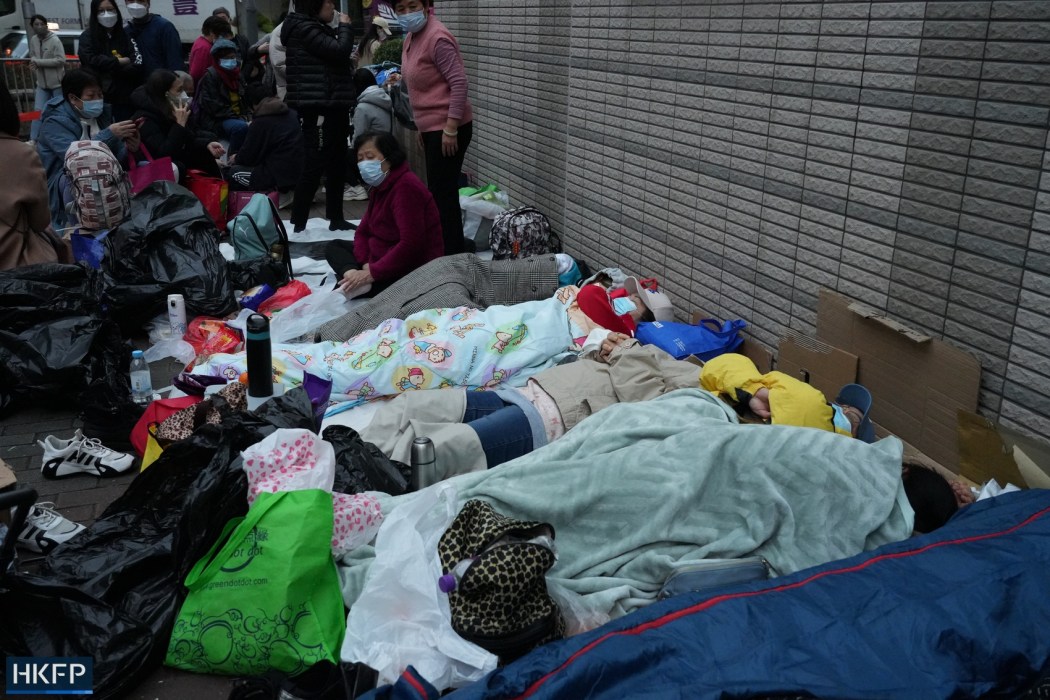
Several middle-aged women also told HKFP that they had only joined the line after they saw others queueing. Some of those in line photographed and filmed journalists, while others took group selfies while queuing.
Despite the long queue for seats, there were empty seats in the public gallery of the main court room. Some people who waited in line also left the courthouse before the trial hearing began at 10 a.m., HKFP reporters on the ground observed.
Protest pushed away
Members of the League of Social Democrats (LSD), one of Hong Kong’s last active pro-democracy groups, were pushed away by police when they arrived at West Kowloon Magistrates’ Court to protest.
9/ Members of the League of Social Democrats, one of Hong Kong’s last active pro-democracy groups, were pushed away by police when they arrived at West Kowloon Magistrates’ Court to protest. pic.twitter.com/4Ok8cwvUGj
— Hong Kong Free Press HKFP (@hkfp) February 6, 2023
LSD chairperson Chan Po-ying was heard heard saying “hope reporters are all filming this” as officers surrounded her and appeared to shove her.
The group was moved to another area outside the court building, and police put up barricades around Chan and Tsang Kin-shing as they displayed a protest banner.

LSD member Dickson Chau was taken away by police after removing his face mask momentarily. Wearing a face mask remains mandatory in public spaces, including outdoors, under Hong Kong’s Covid-19 regulations.
InMedia later reported that Chau was fined for violating anti-epidemic rules.

Former lawmakers Lam Cheuk-ting, Ray Chan, “Long Hair” Leung Kwok-hung and Helena Wong were among those facing trial by a three-judge panel on Monday. Other defendants tried included ex-district councillors Tat Cheng, Clarisse Yeung and Kalvin Ho, as well as former Stand News journalist Gwyneth Ho.
A total of 29 democrats, including former law professor Benny Tai and prominent activist Joshua Wong, have pleaded guilty in the high-profile case, while 18 others denied the charge. But ex-district council member Ng Kin-wai and founder of retail chain AbouThai Mike Lam indicated their intention to change their pleas to guilty last November and last month, respectively, and are expected to confirm their pleas on Monday.
The closely-watched case was committed to the High Court for trial, but the trial hearing was moved to the West Kowloon Law Courts Building to accommodate the large group of defendants and their legal representatives.
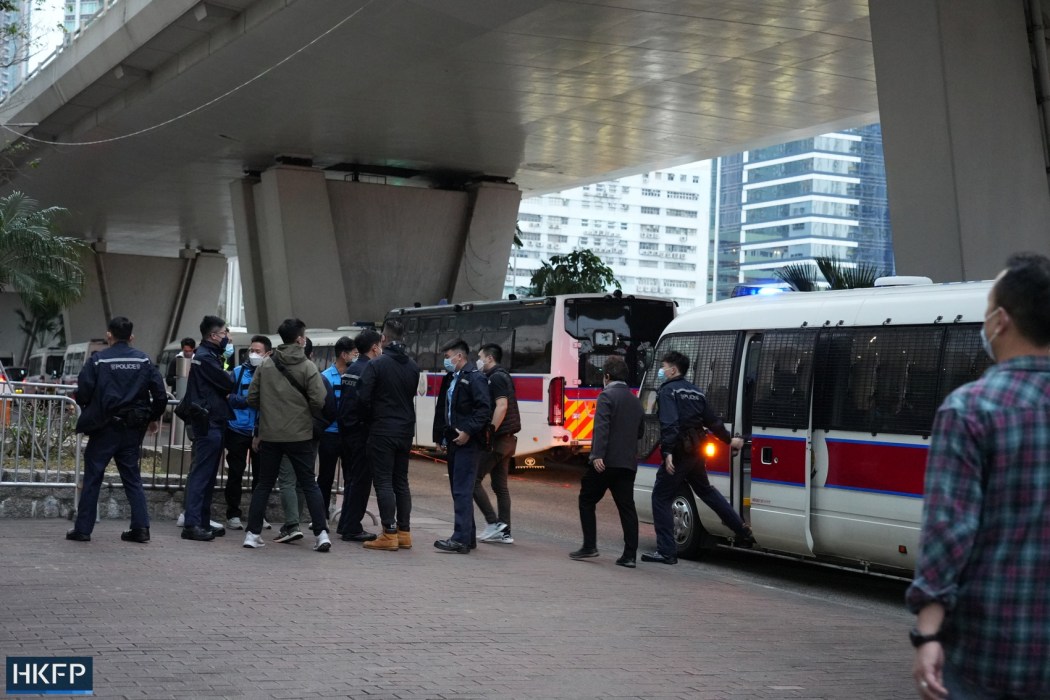
Those who pleaded guilty will be sentenced after the conclusion of their co-defendants’ trial, which is expected to conclude by July.
In June 2020, Beijing inserted national security legislation directly into Hong Kong’s mini-constitution – bypassing the local legislature – following a year of pro-democracy protests and unrest. It criminalised subversion, secession, collusion with foreign forces and terrorist acts, which were broadly defined to include disruption to transport and other infrastructure. The move gave police sweeping new powers, alarming democrats, civil society groups and trade partners, as such laws have been used broadly to silence and punish dissidents in China. However, the authorities say it has restored stability and peace to the city.
Additional reporting: Candice Chau
Correction 19:15: An earlier version of this article misgendered Laurence Vandewalle from the European Union Office to Hong Kong and Macao, we regret the error.
Support HKFP | Policies & Ethics | Error/typo? | Contact Us | Newsletter | Transparency & Annual Report | Apps
Help safeguard press freedom & keep HKFP free for all readers by supporting our team


